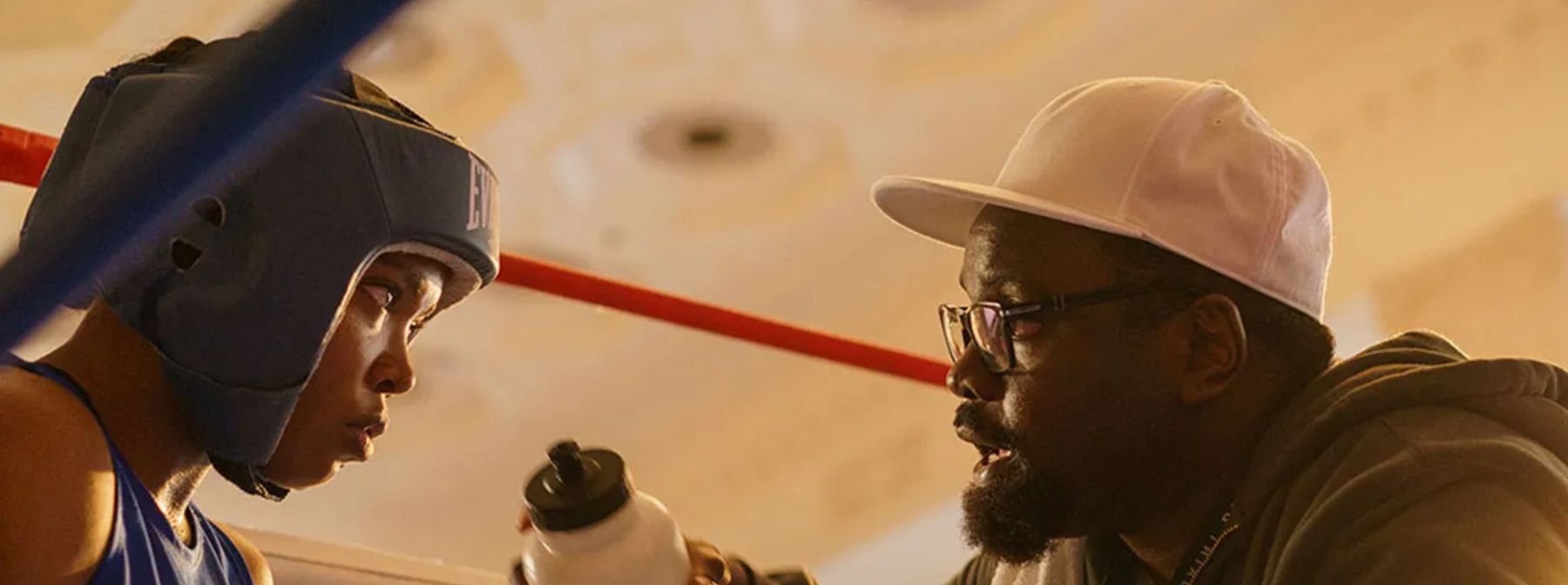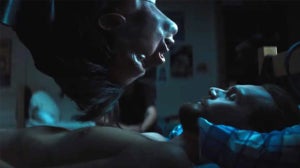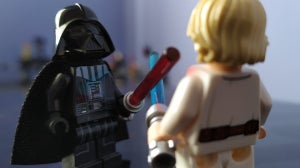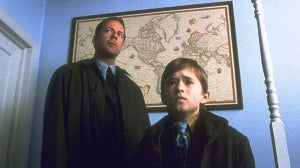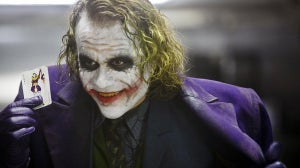
On at least one occasion, it looked like The Fire Inside would never make it to the screen and get the recognition it deserved, which becomes a bitterly ironic fact once you see it.
The biopic of boxer Claressa "T-Rex" Shields, written by Barry Jenkins (of Moonlight and Mufasa: The Lion King fame), initially entered development in 2019, but production got pushed back several times even before COVID shut studios down. On the other side of lockdown, original star Ice Cube was fired for not getting the vaccine, delaying the shoot even further - he was replaced as Claressa’s trainer by Brian Tyree Henry- and then the finished film kept getting pushed back in the release schedule for a couple more years once completed.
For a film which uses the structure of an underdog sports biopic to explore how female athletes often don’t get their due even after successes such as Olympic gold medal wins, the seemingly cursed nature of the shoot offered a fittingly meta conclusion to Claressa Shields’ narrative. Star Ryan Destiny has been attached for several years, and her faith that the film’s message would eventually get out there kept her motivated through each setback.
She told Zavvi: “I knew in the moment of reading it just how special it was. Realising that it was a real story that not a lot of people knew about was even more insane – you don’t feel good after realising that, and it just furthered my desire to be part of something which felt bigger than myself, in a vessel where Claressa’s story would reach as many people as possible.
“I grew as a person in the years between being cast and shooting the movie, which I look back on now as necessary; it was unfortunate, but roadblocks happen for a reason, and it gave me the time to sit with Claressa as a character more. I wasn’t spending the pandemic thinking I should eat, sleep and drink boxing, so much as I was really down, worrying that this film wouldn't end up happening – it made it feel better when we got a second life, and put a fire under me when production finally began, which I might have not had without those years of growth.”
Director Rachel Morrison, the Oscar-nominated cinematographer for Mudbound and Black Panther making her directorial debut, was originally attracted to the project by the way it subverted expectations of the sports biopic genre. Rather than being a triumphant finale, Shields’ Gold Medal win at the 2012 London Olympics proves to be yet another hurdle in her career trajectory.
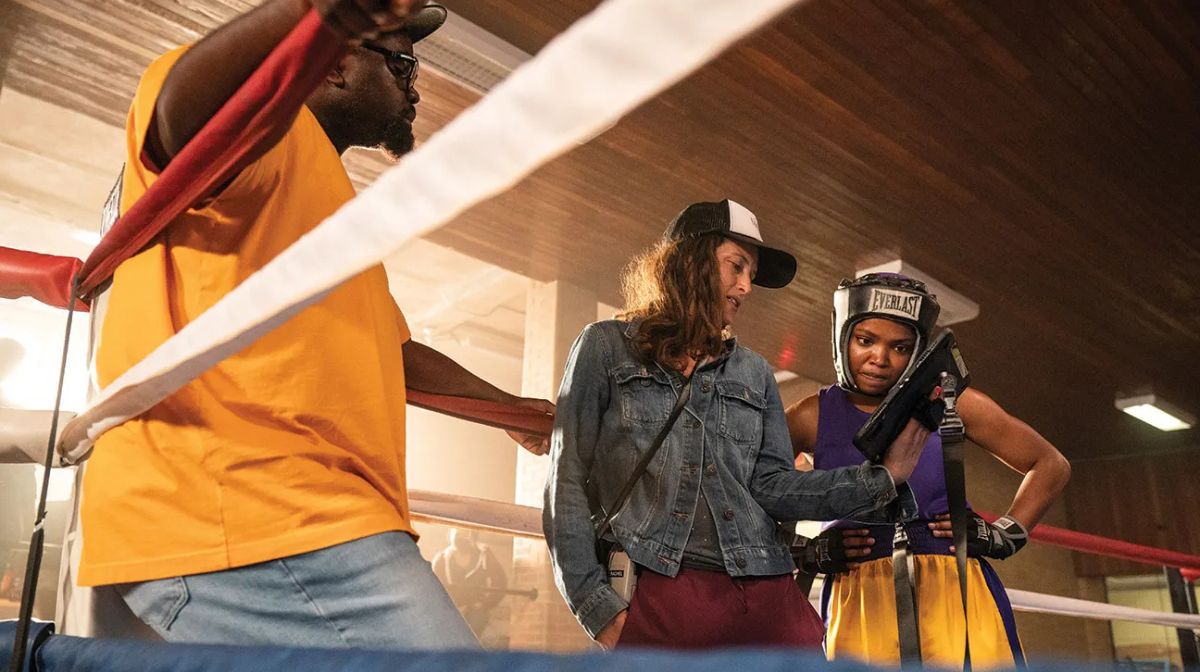
Morrison explained to Zavvi: “I was excited by the idea of upending the sports biopic construct, taking the structure of a genre we all know and love, and doing something different with it. The movie resets at the two thirds mark, and you find the heart of the film is the journey which comes after the win, which is a pretty big swing when you’re telling a sports story, but it makes it feel more real.
“There’s something more inspiring about following the authentic path over the aspirational one, to resist the temptation of doing the Hollywood ending with the athlete on the podium with their medal, frozen in time. I was more drawn to the challenges which continue for her when life goes back to normal the day after her Olympics journey is over.”
As a celebrated cinematographer, famous for manually operating the camera herself whenever shooting, another major attraction for Morrison was to put her own distinct stamp on the boxing genre by finding new ways to capture action in the ring. However, this proved to be one of the biggest challenges she faced.
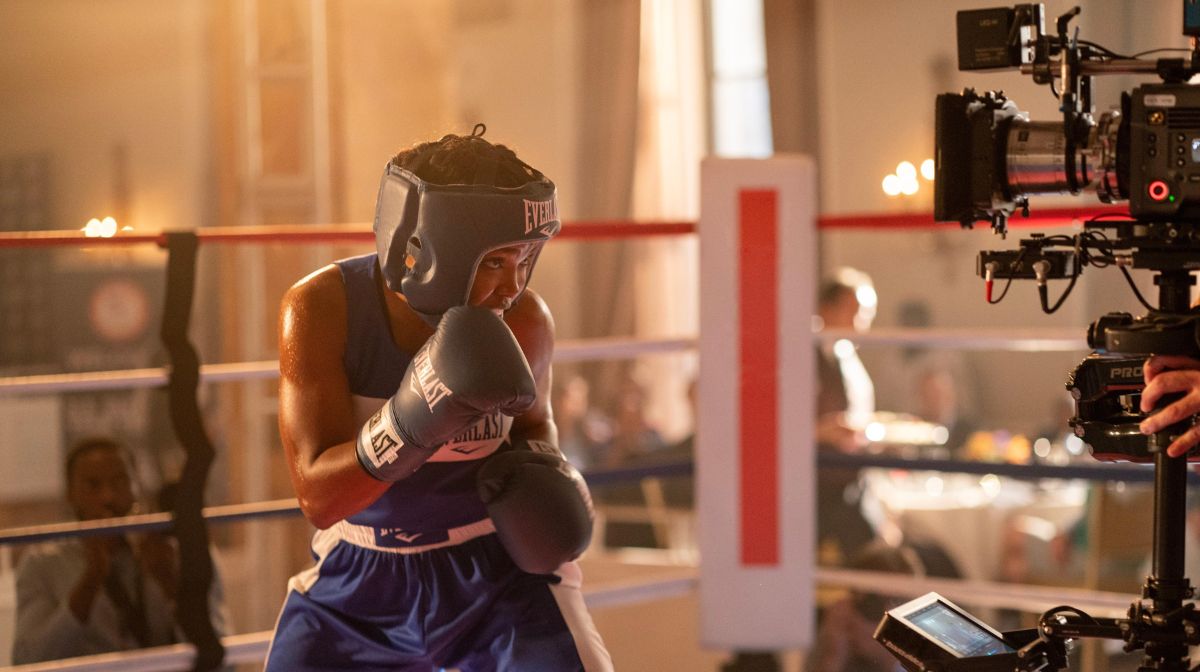
“It was really important for me for the fights to feel experiential”, she continued. “There are many ways to shoot boxing which work, but sometimes they can be too objective, like you’re a spectator at the sidelines – I was more interested in making the audience walk away feeling like they were in the fight.
“But within that, there’s a bigger challenge of making each fight feel distinct so that the audience doesn’t get fight fatigue, and when the sports movie is only the first two-thirds, you don’t want to front load it and exhaust everybody! For me, the best sports films are about how much I’m left caring about the character during the action, rather than the action itself, so building the emotional stakes was the best approach to capture that experiential feeling.
“However, I was often in the ring filming handheld, dancing the dance in a way that was very instinctual for me. The thing I can always fall back on to capture that feeling is my camera operating!”
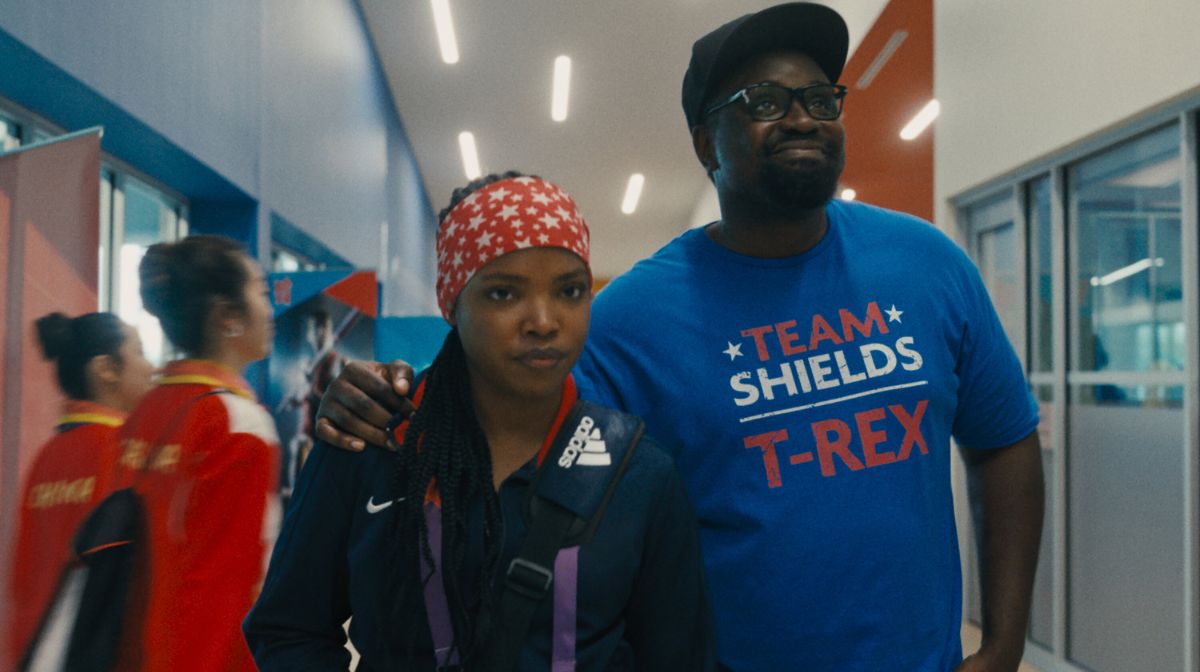
In the earliest stages of production, Morrison kept Shields close for feedback and admits to being “nervous” at sensitively handling her personal life in Flint, Michigan. However, after an early draft of Jenkins’ screenplay was given the thumbs up, she was given complete creative freedom to tell her story, using the boxer’s underdog arc as a jumping-off point for a weightier discussion on how female athletes are treated next to their male counterparts, who frequently get better pay and more career opportunities.
“I think building empathy through experience is one of the things most important to me as a filmmaker, to have audiences walk out with a clearer understanding of a social issue. My big hope is that people can leave the cinema with a knowledge of the hurdles female athletes face, and the changes we still need to make.”
Destiny concluded: “In the few years since I first read this screenplay, there’s been a lot of progress for women in sports, but there’s a lot more space still to grow. I think that starts with people seeing this perspective of what it’s like to be a woman in a male dominated space, which we hope can be a vehicle to raise further awareness about the inequalities women still face in sport.
“It’s great to have a platform like this so we can add to that conversation and hopefully change things a little bit. But more importantly, we hope that people can see female boxing is just as exciting to watch; all the films we’ve been compared to have men at the centre, and this stands as tall as them!"
The Fire Inside is released in UK cinemas on 7th February.

